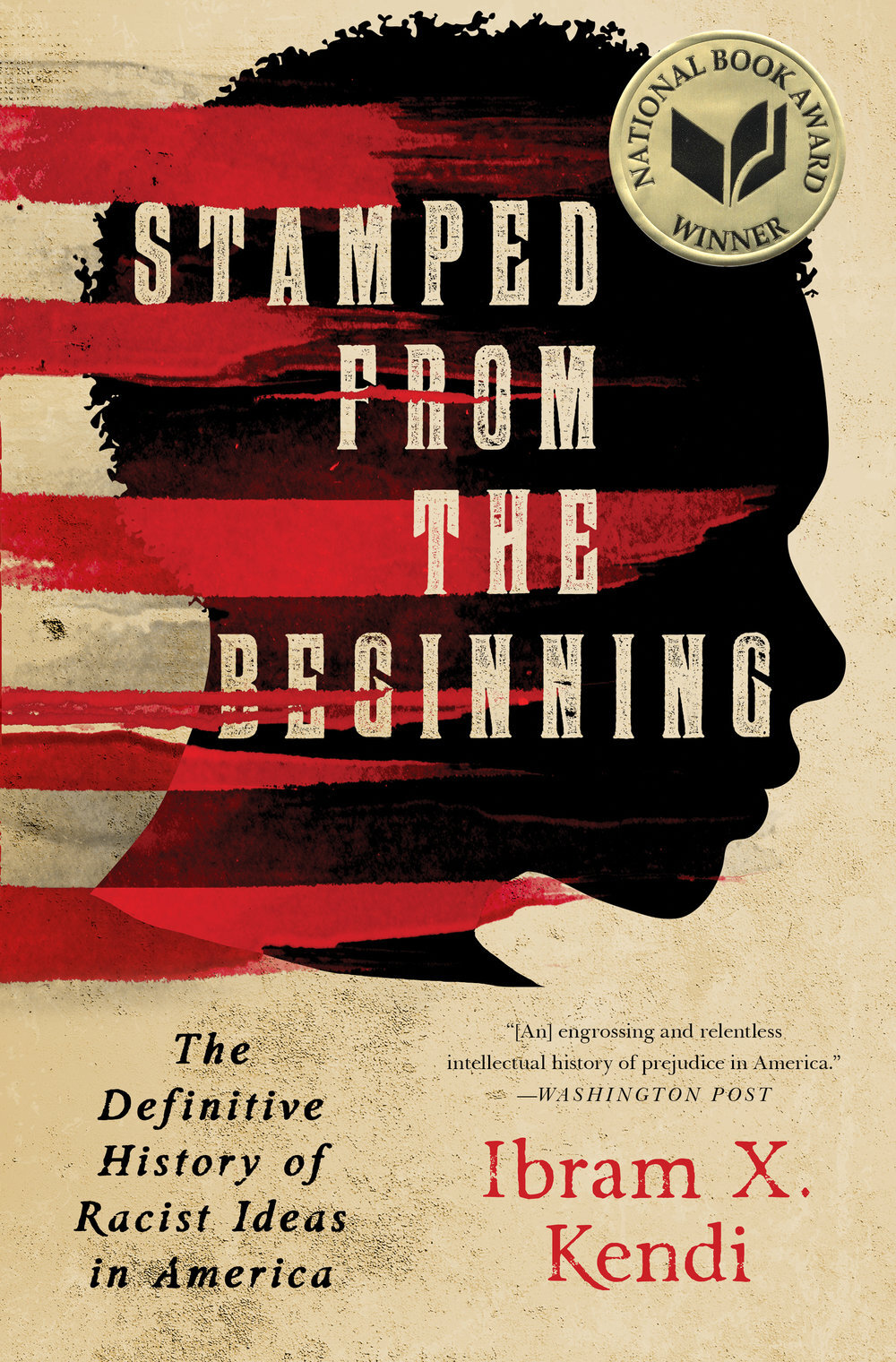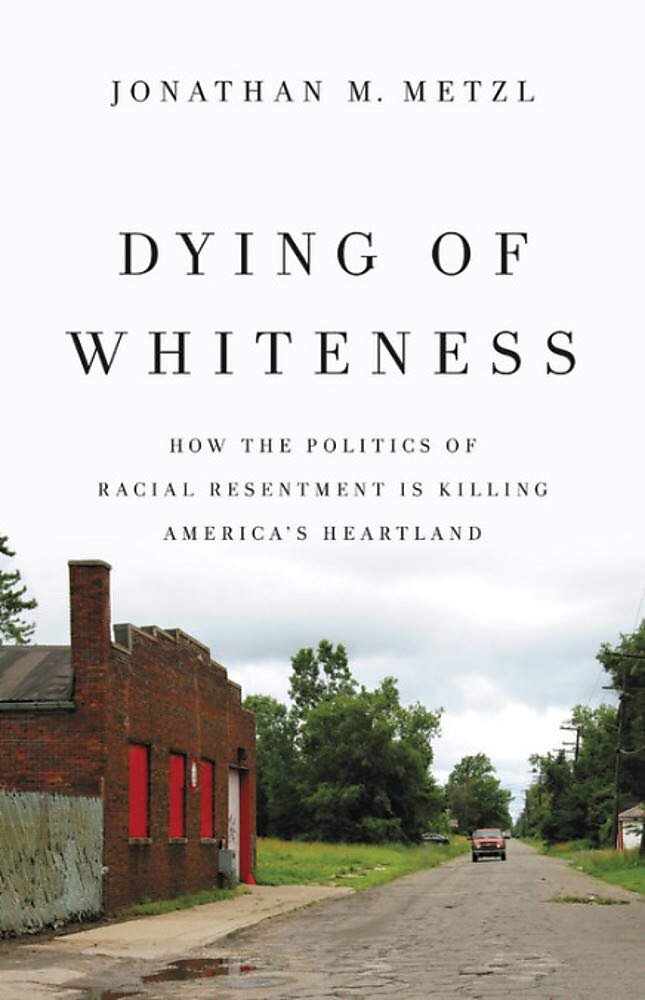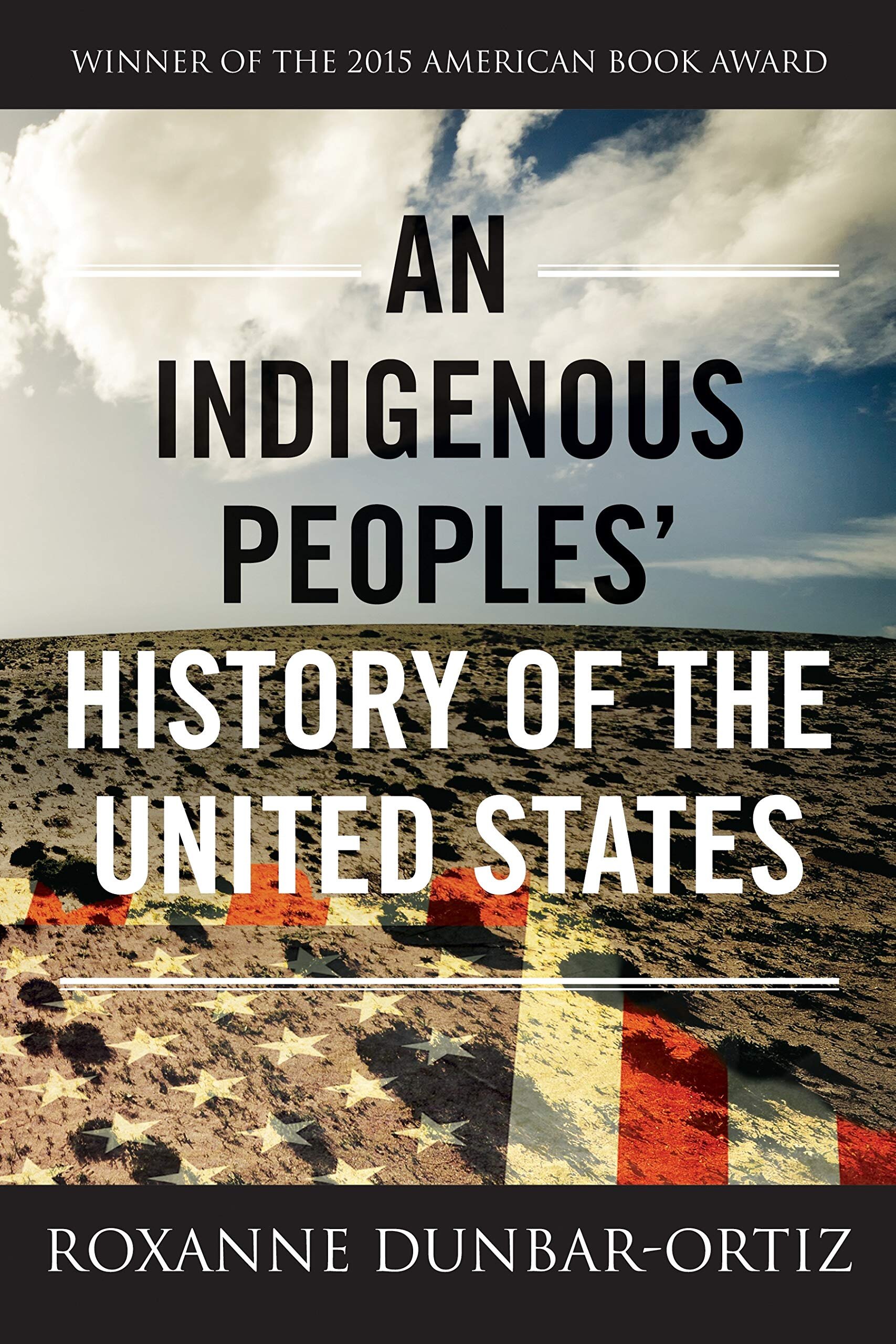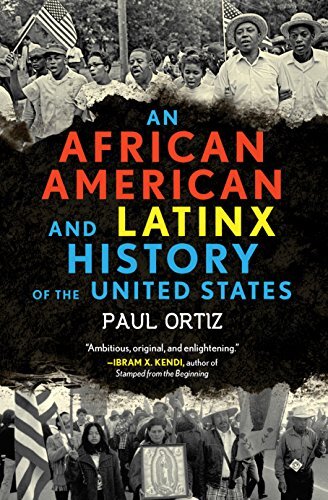Have questions about race? Don't ask your friends or colleagues of color to explain unless they offer. There are lots of people of color who share their thoughts and opinions publicly. Inform yourself with what's out there before asking a person of color you know.
Readings on Race
Many of us struggle to understand the concept of privilege, the idea that some individuals receive unearned advantages in life solely based on being a member of certain social identity groups. Some of us strongly resist the idea we have unearned privilege. In the United States many believe that if you work hard for the things you want, you will be able to get them. We are taught individual effort and determination is all you need in life to success. This essay helps to reframe the idea of privilege and it’s impact on outcomes through a less controversial lens than race or sex/gender.
White Fragility is a state in which even a minimum amount of racial stress becomes intolerable, triggering a range of defensive moves. These moves include the outward display of emotions such as anger, fear, and guilt, and behaviors such as argumentation, silence, and leaving the stress-inducing situation. These behaviors, in turn, function to reinstate white racial equilibrium. This book explicates the dynamics of White Fragility and how we might build our capacity in the on-going work towards racial justice.
What does it mean to be white in a society that proclaims race meaningless yet is deeply divided by race? In the face of pervasive racial inequality and segregation, most whites cannot answer that question. Robin DiAngelo argues that a number of factors make this question difficult for whites miseducation about what racism is; ideologies such as individualism and colorblindness; defensiveness; and a need to protect (rather than expand) our worldviews. These factors contribute to what she terms white racial illiteracy. Speaking as a white person to other white people, Dr. DiAngelo clearly and compellingly takes readers through an analysis of white socialization. She describes how race shapes the lives of white people, explains what makes racism so hard for whites to see, identifies common white racial patterns, and speaks back to popular white narratives that work to deny racism. Written as an accessible introduction to white identity from an anti-racist framework, What Does It Mean To Be White? is an invaluable resource for members of diversity and anti-racism programs and study groups and students of sociology, psychology, education, and other disciplines.
Chapter 12’s discussion of “Common Patterns of Well-Intentioned White People” is brutal and spot-on.
Deploring racism isn’t enough: Addressing white privilege in medical school
In this brief article, a medical student makes the argument that it is the moral imperative of white physicians to take action against racism, self-reflect on their own biases, and work to end systemic inequities.
Witnessing Whiteness invites readers to consider what it means to be white, describes and critiques strategies used to avoid race issues, and identifies the detrimental effect of avoiding race on cross-race collaborations. The author illustrates how racial discomfort leads white people toward poor relationships with people of color. Questioning the implications our history has for personal lives and social institutions, the book considers political, economic, socio-cultural, and legal histories that shaped the meanings associated with whiteness. Drawing on dialogue with well-known figures within education, race, and multicultural work, the book offers intimate, personal stories of cross-race friendships that address both how a deep understanding of whiteness supports cross-race collaboration and the long-term nature of the work of excising racism from the deep psyche. Concluding chapters offer practical information on building knowledge, skills, capacities, and communities that support anti-racism practices, a hopeful look at our collective future, and a discussion of how to create a culture of witnesses who support allies for social and racial justice.
Facilitating conversations about race often involves tension, as both the facilitators and participants bring emotional experiences and their deeply held values and beliefs into the room. Diversity, Equity and Inclusion: Strategies for Facilitating Conversations on Race guides facilitators through a process of becoming comfortable with the discomfort in leading conversations about racism, privilege and power.
Written by the co-founders of Cultures Connecting, this book walks you through the important steps to create a foundation where participants feel brave enough to take risks and share their stories and perspectives. It guides you through strategies for engaging participants in courageous conversations with one another in ways that don’t shame and blame people into understanding. This book is a useful tool for individuals, organizations and college professors who are interested in learning techniques for guiding their audience through dialogue whereby they become open to listening to one another for understanding rather than holding on to old beliefs and maintaining a posture of defense.
In a world where little or big mistakes with race can have us prone to retrenchment, Moving Diversity Forward: How To Go From Well-Meaning To Well-Doing, gets the forces of progression moving again, out of polite awkwardness into a new and rewarding effectiveness. This book offers a blend of accessible theory and tools for practical application to benefit any reader willing to learn about diversity.
"If you believe that your organization has done everything it can to enhance its diversity, and if you are still frustrated at how little progress you have made, Moving Diversity Forward is for you. It is an instructive read for all of those who wish to live and work in a multi-cultural world where everyone has a fair chance to succeed and contribute."
- Frank P. Barron, Chief Legal Officer, Morgan Stanley
Videos & Documentaries about Race
Unnatural Causes is a four-hour documentary series that for the first time on television sounds the alarm about our huge and disturbing socioeconomic and racial/ethnic disparities in health – and searches for their root causes. But those causes are not what we might expect. While we pour more money into drugs, miracle diets, and new medical technologies – and focus prevention efforts solely on what individuals can do to be healthier – Unnatural Causes crisscrosses the country investigating the growing body of evidence that suggests there is more to our health than bad habits and unlucky genes. In doing so, it circles in on a slow killer in plain view: The social circumstances in which we are born, live, and work can actually get under our skin and put us at risk for stroke, heart disease, asthma, hypertension, diabetes, kidney disease, and even cancer.
Note that the series does not simply illustrate differential health care access and treatment, but why some populations get sicker more often in the first place, i.e., the role of inequality, racism, poverty, segregation, and neglect in breeding disease and despair.
Free to watch for many library members, on some PBS stations, or you can buy the videos to watch online or at home. Free discussion guide here.
The division of the world's peoples into distinct groups - "red," "black," "white" or "yellow" peoples - has became so deeply imbedded in our psyches, so widely accepted, many would promptly dismiss as crazy any suggestion of its falsity. Yet, that's exactly what this provocative, new three-hour series by California Newsreel claims. Race - The Power of an Illusion questions the very idea of race as innate biology, suggesting that a belief in inborn racial difference is no more sound than believing that the sun revolves around the earth.
Yet race still matters. Just because race doesn't exist in biology doesn't mean it isn't very real, helping shape life chances and opportunities.
Free to watch for many library members, or you can buy or rent the videos to watch online or at home. Free discussion guides here and here.
This brief 4 minute video is an example of a “privilege walk.” It is a visual demonstration of the advantages that some people have in life through no effort of their own. It is a helpful exercise to begin to recognize how privilege can play out, and that, even if you worked for everything you have attained, you may have had a head start.
Racism among the Well-Intentioned
Podcasts Addressing Race or Race & Medicine
Code Switch on NPR
Our National Conversation About Conversations About Race
Scene on Radio’s series Seeing White
Books on Race in the United States
Since 1865 and the passage of the Thirteenth Amendment, every time African Americans have made advances towards full participation in our democracy, white reaction has fueled a deliberate, relentless rollback of their gains. The end of the Civil War and Reconstruction was greeted with the Black Codes and Jim Crow; the Supreme Court’s landmark 1954 Brown v. Board of Education decision was met with the shutting down of public schools throughout the South; the Civil Rights Act of 1964 and Voting Rights Act of 1965 triggered a coded response, the so-called Southern Strategy and the War on Drugs that disenfranchised millions of African Americans.
Carefully linking these and other historical flashpoints, White Rage pulls back the veil that has long covered actions made in the name of democracy, fiscal responsibility, or protection against fraud, rendering visible the long lineage of white rage. Compelling and dramatic in the unimpeachable history it relates, White Rage will add an important new dimension to the national conversation about race in America.
The History of White People is a mind-expanding and myth-destroying exploration of notions of white race—not merely a skin color but also a signal of power, prestige, and beauty to be withheld and granted selectively.
Ever since the Enlightenment, race theory and its inevitable partner, racism, have followed a crooked road, constructed by dominant peoples to justify their domination of others. Filling a huge gap in historical literature that long focused on the non-white, eminent historian Nell Irvin Painter guides us through more than two thousand years of Western civilization, tracing not only the invention of the idea of race but also the frequent worship of “whiteness” for economic, social, scientific, and political ends.
Some Americans cling desperately to the myth that we are living in a post-racial society, that the election of the first Black president spelled the doom of racism. In fact, racist thought is alive and well in America - more sophisticated and more insidious than ever. And as award-winning historian Ibram X. Kendi argues in Stamped from the Beginning, if we have any hope of grappling with this stark reality, we must first understand how racist ideas were developed, disseminated, and enshrined in American society.
Contrary to popular conceptions, racist ideas did not arise from ignorance or hatred. Instead, they were devised and honed by some of the most brilliant minds of each era. These intellectuals used their brilliance to justify and rationalize deeply entrenched discriminatory policies and the nation’s racial disparities in everything from wealth to health. And while racist ideas are easily produced and easily consumed, they can also be discredited. In shedding much-needed light on the murky history of racist ideas, Stamped from the Beginning offers us the tools we need to expose them—and in the process, gives us reason to hope.
Since the time of Columbus, Indian slavery was illegal in much of the American continent. Yet, as Andrés Reséndez illuminates in his myth-shattering The Other Slavery, it was practiced for centuries as an open secret. There was no abolitionist movement to protect the tens of thousands of Natives who were kidnapped and enslaved by the conquistadors. Reséndez builds the incisive case that it was mass slavery—more than epidemics—that decimated Indian populations across North America. Through riveting new evidence, including testimonies of courageous priests, rapacious merchants, and Indian captives, The Other Slavery reveals nothing less than a key missing piece of American history. For over two centuries we have fought over, abolished, and tried to come to grips with African American slavery. It is time for the West to confront an entirely separate, equally devastating enslavement we have long failed truly to see.
In this groundbreaking historical expose, Slavery by Another Name brings to light one of the most shameful chapters in American history—an “Age of Neoslavery” that thrived from the aftermath of the Civil War through the dawn of World War II.
Using a vast record of original documents and personal narratives, Douglas A. Blackmon unearths the lost stories of slaves and their descendants who journeyed into freedom after the Emancipation Proclamation and then back into the shadow of involuntary servitude shortly thereafter. By turns moving, sobering, and shocking, this unprecedented account reveals the stories of those who fought unsuccessfully against the re-emergence of human labor trafficking, the companies that profited most from neoslavery, and the insidious legacy of racism that reverberates today.
This book was also made into a 90 minute documentary.
With the rise of the Tea Party and the election of Donald Trump, many middle- and lower-income white Americans threw their support behind conservative politicians who pledged to make life great again for people like them. But as Dying of Whiteness shows, the right-wing policies that resulted from this white backlash put these voters’ very health at risk—and in the end, threaten everyone’s well-being.
Physician and sociologist Jonathan M. Metzl travels across America’s heartland seeking to better understand the politics of racial resentment and its impact on public health. Interviewing a range of Americans, he uncovers how racial anxieties led to the repeal of gun control laws in Missouri, stymied the Affordable Care Act in Tennessee, and fueled massive cuts to schools and social services in Kansas. Although such measures promised to restore greatness to white America, Metzl’s systematic analysis of health data dramatically reveals they did just the opposite: these policies made life sicker, harder, and shorter in the very populations they purported to aid. Thus, white gun suicides soared, life expectancies fell, and school dropout rates rose.
Powerful, searing, and sobering, Dying of Whiteness ultimately demonstrates just how much white America would benefit by emphasizing cooperation, rather than by chasing false promises of supremacy.
Today in the United States, there are more than five hundred federally recognized Indigenous nations comprising nearly three million people, descendants of the fifteen million Native people who once inhabited this land. The centuries-long genocidal program of the US settler-colonial regimen has largely been omitted from history. Now, for the first time, acclaimed historian and activist Roxanne Dunbar-Ortiz offers a history of the United States told from the perspective of Indigenous peoples and reveals how Native Americans, for centuries, actively resisted expansion of the US empire.
In An Indigenous Peoples’ History of the United States, Dunbar-Ortiz adroitly challenges the founding myth of the United States and shows how policy against the Indigenous peoples was colonialist and designed to seize the territories of the original inhabitants, displacing or eliminating them. And as Dunbar-Ortiz reveals, this policy was praised in popular culture, through writers like James Fenimore Cooper and Walt Whitman, and in the highest offices of government and the military. Shockingly, as the genocidal policy reached its zenith under President Andrew Jackson, its ruthlessness was best articulated by US Army general Thomas S. Jesup, who, in 1836, wrote of the Seminoles: “The country can be rid of them only by exterminating them.”
An intersectional history of the shared struggle for African American and Latinx civil rights
Spanning more than two hundred years, An African American and Latinx History of the United States is a revolutionary, politically charged narrative history, arguing that the “Global South” was crucial to the development of America as we know it. Scholar and activist Paul Ortiz challenges the notion of westward progress as exalted by widely taught formulations like “manifest destiny” and “Jacksonian democracy,” and shows how placing African American, Latinx, and Indigenous voices unapologetically front and center transforms US history into one of the working class organizing against imperialism.

















